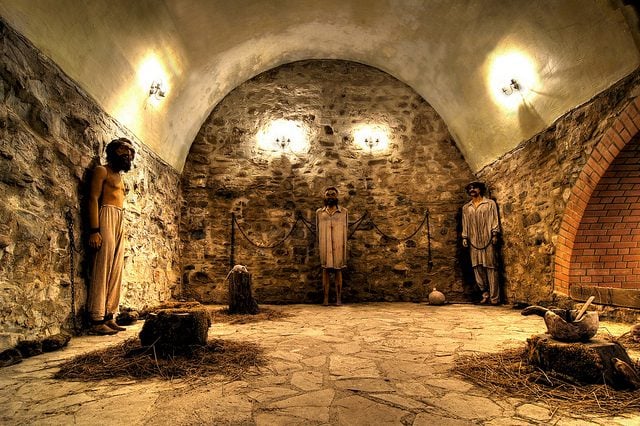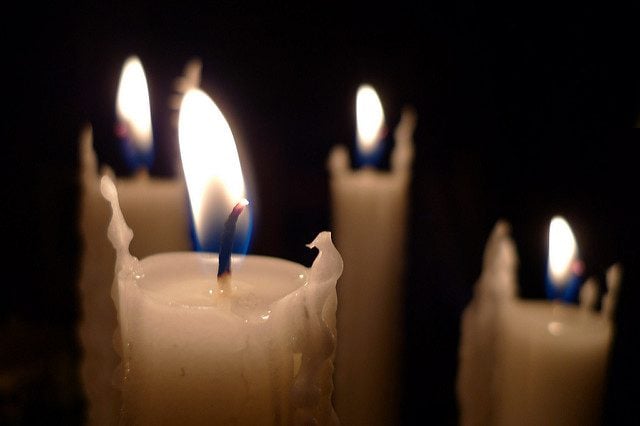Two men were executed last night by the state.
And no one said a word about one of them.
Because it wasn’t about Troy Davis. Because witnesses didn’t recant. Because the evidence was clear. Because hundreds of thousands worldwide didn’t sign a petition for him.
Because it was about a white supremacist.
There is tragic irony to last night’s events (click here for the follow-up post about the week in which four people were executed by different states). Even as the throngs of activists wept, celebrated, sang and prayed when word came that the execution of Troy Davis in a Georgia prison was delayed, though only for only a few hours, by no less than the U.S. Supreme Court, the state of Texas was busy plunging a poisoned needle into the body of Lawrence Russell Brewer.

There were no last minute heroics, desperate filings or social media frenzy.
There were no hashtags, blocked or otherwise.
No one wearing “I Am Lawrence Brewer” T-shirts.
While Davis was surrounded by a great cloud of witnesses, Brewer died alone, his parents and his victim’s relatives watching from a nearby room.
He had no final words in death, only a single tear.
Outside his prison, there were no massive vigils, no sea of placards and no throngs chanting slogans about the injustice of the death penalty in the case of a racist who so brutally killed a man because of skin color.
And let’s be honest: a great many of the people who wanted Troy Davis’ life spared might very well believe the state was right to kill Lawrence Brewer. Many of those people who were appalled that the audience cheered at the number of executions committed by the state of Texas might deep down harbor suspicions that, of the 234 executions, Texas might have gotten this one as right. As right as Georgia got the Davis case wrong.
After all, Davis’ case, unlike Brewer’s, seems riddled with ambiguities, despite what the prosecutor might say. After all, Davis might very well have been innocent. And it is easy to defend a potentially innocent man against the death penalty. It is far more difficult to defend a clearly guilty man who dragged a man’s body from the bumper of a truck.
In Jackson, Ga. at the Troy Davis vigil, well-known activists like Rev. Al Sharpton showed up to add their voices to the already strong stream of notables who have pleaded with the state to stay the execution, voices that have included pope, former President Jimmy Carter, Archbishop Desmond Tutu, former prison officials and many, many more.
And we should all be thankful that Davis’ case revealed, to some extent, the charade of the death penalty. We should be thankful that, after Troy Davis’ case, there should be no way for the state to wield this sword with such hypocritical savagery again. The truth is out. The Empire has no clothes. The death penalty is revealed for what it is: barbaric bloodlust riddled with mistakes. The death penalty serves only the god of vengeance and idol that may make us feel safer but, in reality, turns us into enemies of God.
For those involved in the long fight against the death penalty, there should be mourning at the loss, but as Christians, we serve a God whose business it is to redeem executions. No, Troy Davis will not be resurrected. Most certainly not. But if we believe the resurrection to only be about bringing a body back from the grave, then we have missed the point of resurrection. Resurrection is also about taking the momentum of tragedy and injustice and flinging it back into the bloody hands of the powerful.
It is about transforming a scar, a cross, an electrified chair or a poisoned needle into a public spectacle that shames the powerful.
But. But. I am doubtful of this redemption, of the staying power of this momentum, because while we — myself included — rushed to defend Troy Davis, to cry out for him, to give voice to his voicelessness, we ignored the voice of a dogged white supremacist who met the same fate, on the same night as Troy Davis, who became a black man’s brother in circumstance.
We thumped our pious chests in front of cameras. In public. On social media.
Ours, though, was not the prophetic voice today.
Rather, the true prophetic voice on Wednesday came not from Georgia, but from Texas where aging African American Civil Rights activist Dick Gregory fasted for half a day to protest the killing of an avowed white supremacist who murdered a black man solely because he was black.
The vigils outside the prison in Jackson, Ga., are good news in this world. But it should be known, lest we pat ourselves on the back for our altruism, that until those same protests are seen outside a prison when the state is preparing to kill a white supremacist, abolishing the death penalty is a long, long way away.
That there are many hands needed still to bend the moral arc of the universe toward justice.
Last night the state killed two men.
But we only cared for Troy Davis.











